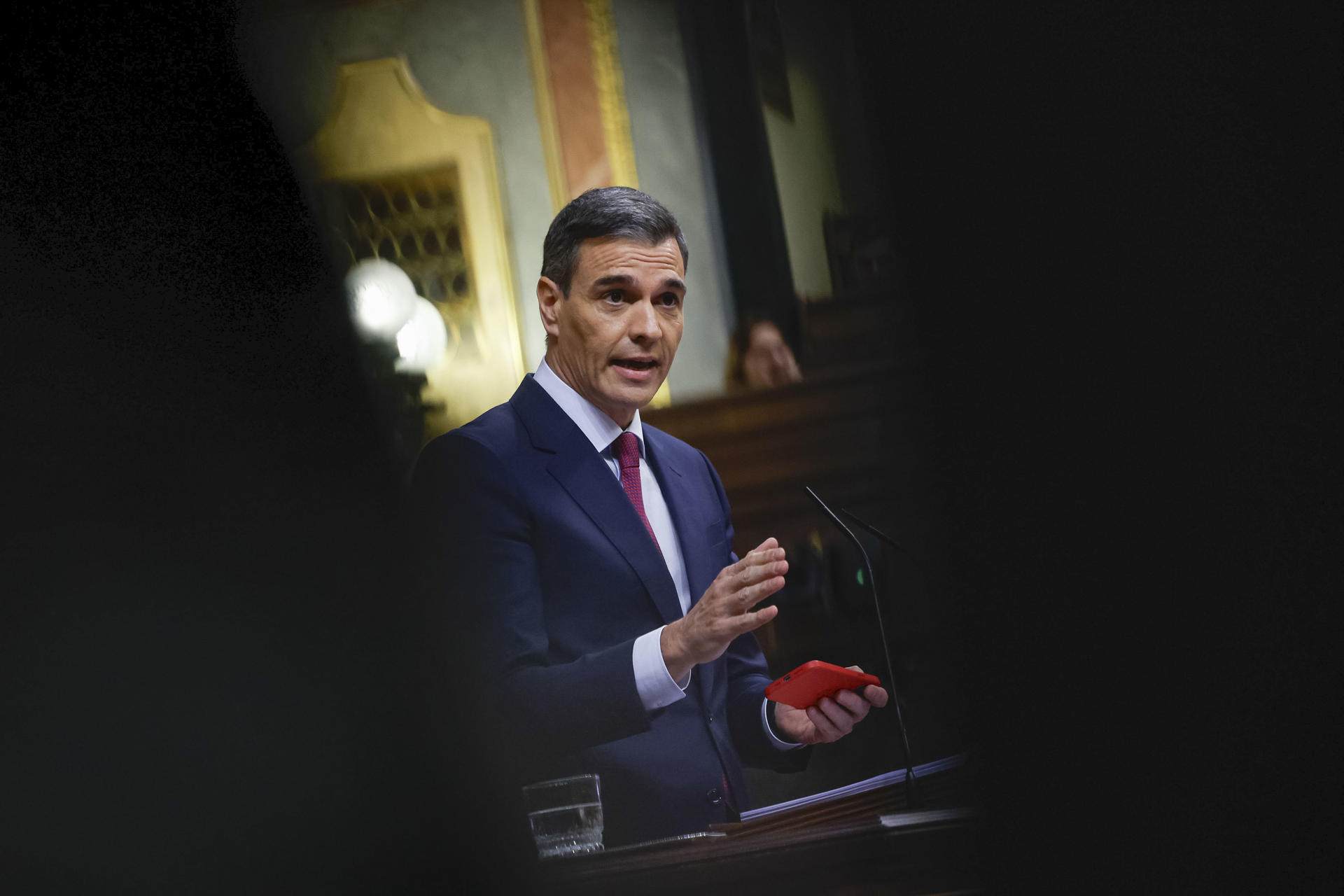Twenty-two ministers, 12 of whom are women, and two of whom are Catalan. This is how the new government of Pedro Sánchez, announced officially this Monday, shapes up. The appointment of multiple deputy prime ministers, favoured by Sánchez, now extends to four, all of them women: economy minister Nadia Calviño also remains as first deputy PM, with labour minister Yolanda Díaz as second - the Sumar leader also obtains four more portfolios for her party. The ecological transition minister Teresa Ribera also carries on, as third ranked deputy PM. However, the Socialist (PSOE) premier wanted to reward his trust in María Jesús Montero by placing her as the fourth deputy prime minister in his new executive. She will also continue in the treasury portfolio.
Meanwhile, Pedro Sánchez has decided to turn Félix Bolaños into a 'superminister': he will keep his powers in the presidency department - effectively the job of being the leader's right hand man - and minister for relations with parliament; but now he will also become justice minister. It is therefore a very ample portfolio, full of significance: Sánchez's favourite minister in negotiations with the parliamentary groups - in a legislature that is linked to the Republican Left (ERC) and Together for Catalonia (Junts) - will also be minister of justice, just as the law on the amnesty for Catalan independentists begins its parliamentary journey. This last portfolio is taken from Pilar Llop, who is leaving the Moncloa palace.
With regard to Catalan participation in the cabinet, the Spanish PM has decided to bring in the former Barcelona mayor Jordi Hereu as industry minister (replacing Héctor Gómez). The Catalan Socialist was mayor of the Catalan capital between 2006 and 2011, between the mandates of Joan Clos and Xavier Trias, and since 2020 has been president of telecommunications satellite operator Hispasat. The other Catalan minister is part of the quota of ministers for junior government partner Sumar: MEP Ernest Urtasun, who in recent months has been spokesperson for Yolanda Díaz's party. He will be the new culture minister (replacing another Catalan, the PSC's Miquel Iceta).
Former Canary Islands president Ángel Víctor Torres will also be a minister, coming in to democratic memory (relieving Félix Bolaños) and territorial policy (relieving Isabel Rodríguez). But Rodríguez does not leave the Spanish government: she gives up the role as spokesperson, but becomes minister of housing and urban agenda (a portfolio held by the PSC's Raquel Sánchez until now).
The functions of government spokesperson are now in the hands of Pilar Alegría. The Socialist will be the new face of the press conferences after the weekly cabinet meetings, will keep her current portfolio of education and will also take over as the head of the ministry of sport. José Luis Escrivá remains on the executive, but changes portfolio: he leaves social security for the ministry of digital transformation, which until now was part of the package in the hands of first deputy PM Nadia Calviño.
Apart from Calviño, there are three ministers who will keep the position they were sworn in as in 2018, when Pedro Sánchez first entered the Moncloa through the motion of no confidence in Mariano Rajoy. Fernando Grande-Marlaska will continue as interior minister, Margarita Robles will remain in charge of defence and Luis Planas will hang on to agriculture. José Manuel Albares will continue with the important foreign affairs portfolio in his hands.
Also re-entering the executive is Óscar Puente, who will take the wheel in the ministry of transport (the other role that Raquel Sánchez held). In other words, he will have the task of dedicating himself to the transfer of the Rodalies suburban rail services to the Generalitat of Catalonia. Elma Saiz, former delegate of the Spanish government in Navarra, will be the new head of social security (which Escrivá leaves). Diana Morant will remain as minister of science, but will also include the universities portfolio in her responsibilities (Joan Subirats held this post and is now leaving the Spanish government). The equality portfolio is back in the hands of the Socialists: the minister will be Ana Redondo, a profile unknown even by the press. She replaces Podemos minister Irene Montero.
The Sumar ministers
As for Sumar, and aside from Ernest Urtasun, ex-Podemos politician Pablo Bustinduy will become minister for social rights (replacing Podemos leader Ione Belarra), Mónica García of the Más Madrid party comes in to health (replacing José Miñones) and current MEP Sira Riego from United Left will be head of the new youth and children ministry.

